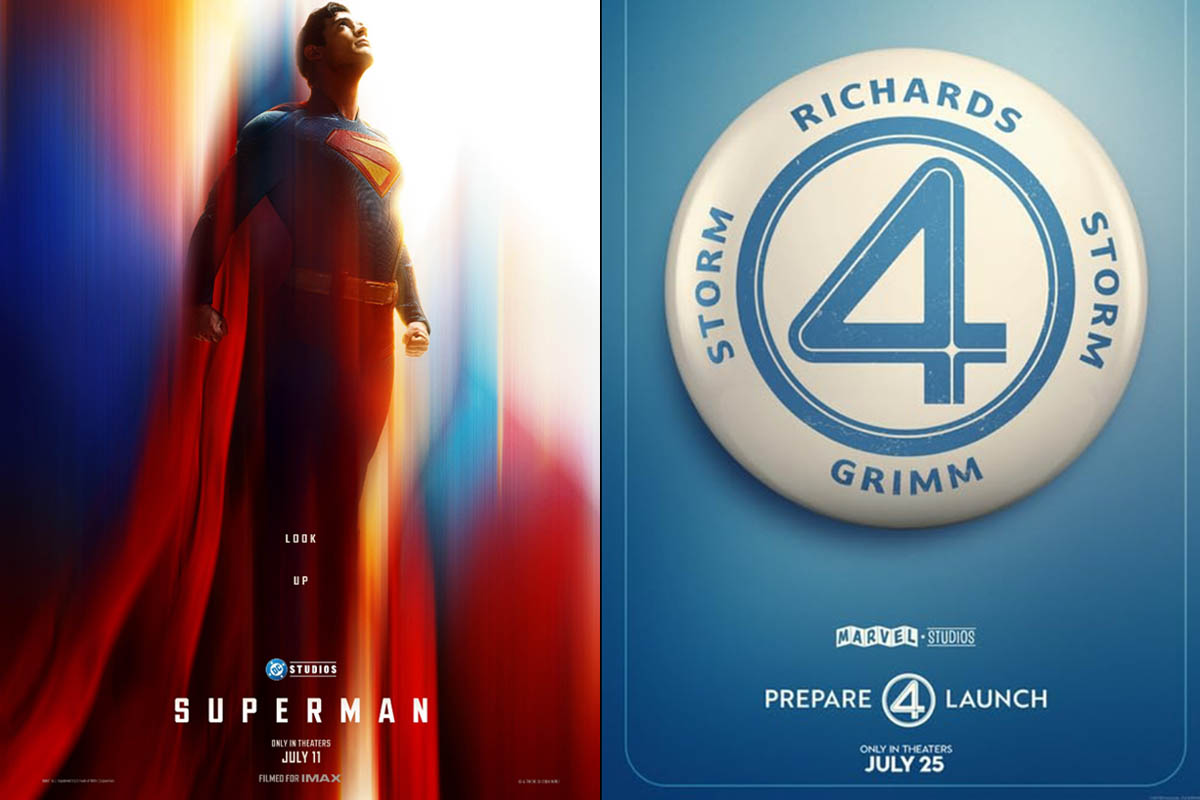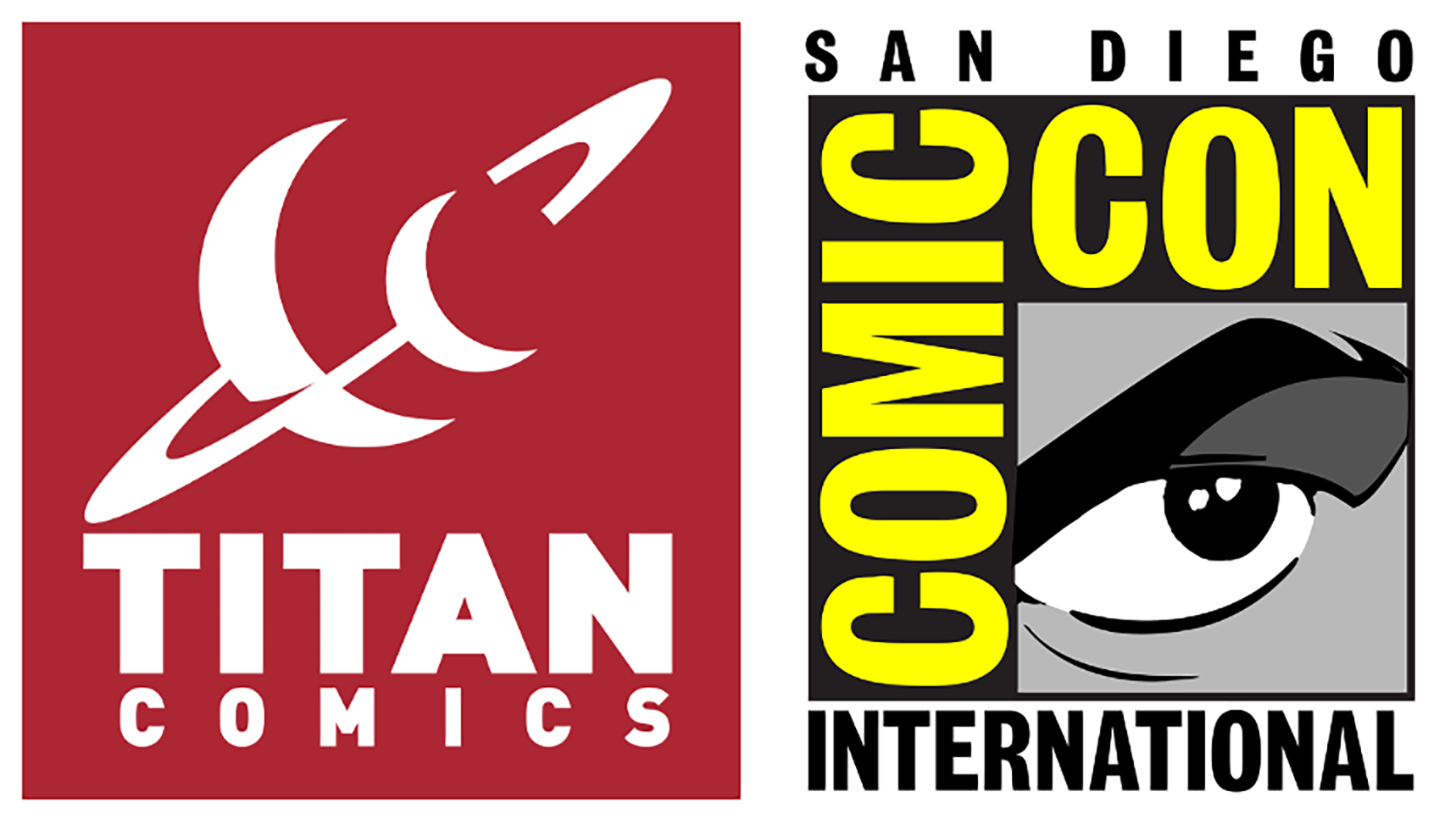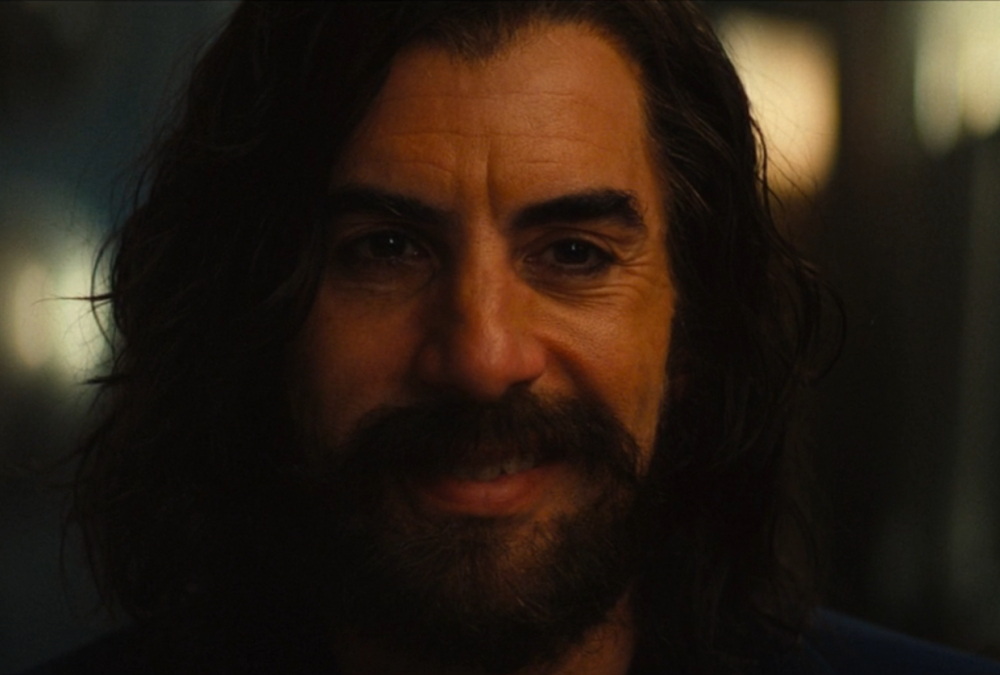![]()
Fans think a live-action Dragon Ball Z film can’t be done after 2009’s disastrous “Dragonball: Evolution†film.
Now a pilot episode of a Dragon Ball Web series had reignited the interest for this adaptation.
On YouTube, Robot Underdog released an fan-made Web episode called, “DBZ: Light of Hope†that features intense fight scenes and special effects. To this date of publication, the video garnered nearly 11 million views in three weeks of release.
Latino-Review had an exclusive phone interview earlier this month with director Donnie McMillin and producer Rita McMillin. We discussed the Dragon Ball Z fan film challenges, storyline, fight choreography and the hope of actually making an official film.
“DBZ: Light of Hope†is currently out on YouTube and can be viewed at the end of this interview. Read the full interview below.
Latino-Review: Let me start with this—why did you want to do a Dragon Ball Z fan film?
Rita McMillin: We chose to do Dragon Ball Z, because it was something that wasn’t been done before aside from the 2009 film “Dragonball: Evolution†that most people weren’t happy with. Most Dragon Ball fans thought this actively never was represented well. There are so many characters that we love from DC or Marvel are all being brought to life to the big screen. But, nobody was really doing Dragon Ball Z. As a fan, we wanted to have those characters come to life. We decided to do it ourselves.
Latino-Review: So what you’re telling me is that you guys are really, really true fans all this time. And now you just want do it right?
Rita McMillin: Yeah. [Laughter]
Donnie McMillin: Not only that, you look at the supply and demand. We all grew up as geeks and everything that comes with geek culture. You look online and in the theaters—there’s just something lacking in the anime department. There’s not the proper representation. There are more than enough superheroes. We noticed that the Dragon Ball fans are starved. So we wanted to try to give them something that will blow their minds—for free.
![]()
Latino-Review: How did you figured you do a Dragon Ball Z differently from the actual movie? What made you think you’re going to do this right?
Rita McMillin: Our goal in the pilot episode was to prove that a live-action Dragon Ball Z could be done. The response and the reaction from fans were [great]. The responses were very overwhelming. We sought out to achieve was that it could potentially be done.
After the 2009 movie, pretty much everyone’s idea was that it was impossible to do a live-action Dragon Ball Z. So the things we’ve done differently in “Dragon Ball Z: Light of Hope†in contrast with the movie—was that we’ve stuck with the actual source material. We reached out to Derek Padula, who is the The Dao of Dragon Ball. He knows the most about it than anyone to write the script. He incorporated everything about it from the characters to the story. Everything will be true to the source material. That was part of it.
Everyone on our casting crew are long-time fans to understand and know the characters. So by having them all on board also really helped, which made a big difference. The choreography and fighting are a huge part of Dragon Ball Z. It’s really at the core of fighting in every episode. They’re always fighting. We’ve worked with the stunt team and martial artists, who are all long-time fans of Dragon Ball. We were able to bring the choreography and the fighting to life in the way and style that represented the anime. Those are the big factors we did differently.
Donnie McMillin: It was also the style that the anime captures as well through the cinematography, editing, fast-pace cuts and the fight scenes. It all comes together as larger than life. Even though some people had done Dragon Ball and came close to capture that essence—they were still lacking in one of those categories. We tried to look at the big picture. We also reached out to fans and got their feedback. We really wanted to make a community and get them behind the project. It was truly doing something for the fans and by the fans. It’s factoring in all of the elements that will do justice to Dragon Ball.
![]()
Latino-Review: Honestly I have to say that it’s been decades since I’ve seen any type of Dragon Ball. I’ve skipped the movie and barely remember seeing the cartoon as a child. What storyline is being portrayed in this Web series? Is this largely brand new and at what time period?
Donnie McMillin: It was based off the TV special called “Dragon Ball Z: The History of Trunks.†It’s an alternate timeline. It is canon. It’s not truly in line with the canon story since it’s an alternate timeline. It’s like a different reality almost where we’re seeing the androids unlike in the android saga. They’re more cold-blooded and cold-hearted. They’re not as fun. It’s a lot more serious. It’s a whole lot darker. It seems like it would cater more towards the live-action world and that’s why we went that way.
We wanted to stay as true to the storyline as possible. There will be a couple of adjustments since it’s still an adaptation.
Latino-Review: Could you tell me about the actors you’ve brought on board? From my understanding, they’re all martial artists in their own way?
Rita McMillin: The main actress, Amy Johnston, is a world-class martial artist. She does stunt doubling for a few big movies. She is trained in her entire life. She plays Android 18. Anton Bex, who plays Gohan, is trained in martial arts for his entire life. He’s very, very talented in martial arts. And also Jack Wald, who plays Young Trunk, is only ten-years-old and has been training in martial arts since he was five-years-old. He is very well-rounded with all types of martial arts.
The guy who plays Android 17, [Tyler Tackett], has done boxing and little bit of MMA. He did so well in personality-wise during casting to say that we had to have him. He trained months and months with our stunt team. They got him up to speed and did the wire work. He learned everything in a few short months to be able to do the shoot.
Donnie McMillin: It was pretty incredible. He came in so gung-ho that you would never know he didn’t have years of martial arts training. Every day he was just working, studying and working with our fight choreographer. He worked to perfect everything. It was pretty incredible to watch actually.
![]()
Latino-Review: Did you have to match the fight choreography with the comics and cartoons?
Rita McMillin: Absolutely.
Donnie McMillin: Our fight choreographer is actually an avid Dragon Ball fan. We all already knew what we needed to bring to the table. We started collaborating with him and he took it to the next level. It’s truly [amazing] to watch these guys and how they fought. He understood the choreographed fighting with visual effects and energy blasts. If you didn’t know better, you would think he studied the true martial arts [of Dragon Ball]. He really got it. He really honed in on the style and really perfected it.
Latino-Review: It was quite wonderful. I thought the fight choreography jumped off the pages of the cartoon. It was watching a nice long dance sequence of Dragon Ball.
Donnie McMillin and Rita McMillin: [Laughter]
Latino-Review: Could you tell me about the difficulties on this project? Obviously, this is not a big Hollywood studio type of project. You have to do something else for a Web series, especially since you are doing it for free. Tell me the challenges for this project.
Rita McMillin: I would definitely say that the restrictions presented a lot of challenges. We raised some money on Indiegogo from fans totaling about $10,000 to do the whole production. We’ve been trying to get locations. A lot of the fight was filmed at Griffith Park, because we couldn’t afford to go back to the original location. We had to go to the park to shoot for free when we could. Part of the scene we shot with the wires for, we had to shoot it at the gym where they did some training. The actors had to completely pose frame by frame, because we couldn’t afford to go to a full green screen studio. It couldn’t be shot there so it could easily be keyed out.
There were so many [more] things such as equipment-wise. We did have a Red Epic Camera for some of the scenes. We also had to rely on our Canon DSLR. So we had to match all of our footage together and make it look the same.
Donnie McMillin: It was really filmmaking at its best. You’ve always been working with a skeletal crew. Basically, it’s any challenge you would have with a small budget [film], we had dealt with. It took a little longer than what we wanted to take. We just didn’t want to crank it out to put it out there just because. We did take our time with it. Budget-wise, it was the biggest factor we had to deal with.
Everyone had a full-time job that was on the team. It was working whenever we could. We had to pull all-nighters and work weekends. It always come back to the budget. We were always struggling, because it was a true passion project. We had to face many challenges in that sense.
Latino-Review: Well, you guys pulled it off quite nicely.
Rita McMillin: Thank you.
Latino-Review: How did you work together as director and producer?
Donnie McMillin: We’ve been working together for quite a while. We’re married actually. We figured on how to work together in life. [Laughter] It’s a really awesome opportunity to be able to work with someone you’re married with and to create really fun projects that the world could enjoy. It’s been a really neat experience.
There are definitely challenges, because you’re constantly working. You would come home and say, “Hey, honey. Love ya! Let’s get to work on Dragon Ball Z.†[Laughter] You’re just constantly focused on some goal, but it brings us together in a very nerdy way. I think it was a really cool experience. It just helped us grow and work together in many different ways.
Latino-Review: So basically you’re telling me that your marriage is stronger, because of Dragon Ball Z.
Donnie McMillin: [Laughter] I think so. As silly as it may seem, it’s more than Dragon Ball Z and trying to grow Robot Underdog as a brand. It’s kind of our baby for the last couple of years. Dragon Ball Z had been such a huge part of that. It’s just this thing we’ve been cultivating and it’s been really fun.
Latino-Review: With the pilot episode already out, I’ve noticed that you have over 7 million views (now 11 million views at the time of this publication) in less than a week. How do you react to that?
Donnie McMillin: [Laughter] I feel like I’m going to wake up and it’s not going to be real. It really feels like a dream. It’s really hard to process. When we upload the video, the whole team got together and tried to guess on how many hits it was going to get. We said, “300,000. No, let’s say a million. No. Maybe 3 million.†Once it got past 3 million views, we’ll just see what happens. It’s unbelievable.
I would say with the feedback that makes it so special about it. The views will be trivial at some people. After you passed a million views, anything after that is just icing on the cake. Just from the comments we’ve received, people were saying they were in tears that we brought it to life andthey thought it wasn’t even possible. It was just mind blowing to me. We wanted to make someone happy, but we didn’t think it was going to blow up the way it did.
Latino-Review: You left this episode on a cliffhanger. How many planned episodes did you have and what will be the frequency of release?
Donnie McMillin: We worked with our writer for a three-part series. There are three scripts already laid out. We’re prepared to move forward once we are able to raise the funds. We started to brainstorm on how we’re going to execute these episodes now. Rita, you probably could answer this better than me.
Rita McMillin: Two more episodes are already written. People do expect something bigger and better quality [than the pilot episode]. So we’re trying to figure out if it’s possible and if the fans definitely want it. When we released the episode, we didn’t have a donation platform setup immediately. There’s such a high demand. Everyone is saying, “We want to give you money! Make a web page.†We’ve already taking donations for the next episode. We just need to figure on how much we need to do it properly so that we don’t run into the same issues in the pilot episode.
We just want to do it better. It’s with all the expectations from the fans that it must be better. Now it’s about on how quickly we’re able to raise the funds and turn it around. We don’t have a definite answer right now. I can’t guarantee that the second episode is coming. We’ll update it on our YouTube channel as soon as we know when it will happen.
Latino-Review: Now an important question to ask is how did you guys secure the rights to do a Dragon Ball Z film? Someone did a Power Rangers fan film and it got shut down briefly. Obviously, you didn’t get shut down. So how did you secure the rights?
Rita McMillin: We actually don’t have the rights. Toei Japan is the one that holds the license. As far as we know, they’re not really interested in doing a live-action Dragon Ball Z. We’re not doing anything as a super-high budget. It’s a labor of love for the fans and by the fans. It’s a passion project. Until Toei sees this, they will understand that we’re trying to make a positive difference. Previously, almost all Dragon Ball fans didn’t believe it was possible. It was surrounded by a lot of negativity. Something that we’ve done legitimately changed all that.
Now as we think about Dragon Ball Z, people aren’t going to think about just “Dragonball: Evolution.†They’ll now also be thinking about “DBZ: Light of Hope.†We’re hoping that they’ll understand and see the positive impact. We’re also spreading awareness for their other products. So it’s not only to bring attention to the live-action, but also to the anime, video games and their other products.
We tried to do everything we can to make them happy so they won’t take us down. Ultimately, we want to work with them. We would love to do this similar to Mortal Kombat fan film. Their response was so positive that Warner Brothers went, “Let’s work with these people. Let’s make it official.†I would say to one day make this into an official series.
Donnie McMillin: That will be the ultimate dream comes true. We put out the first pilot. The original goal behind it was to prove that it can be done. You can do live-action Dragon Ball Z and shouldn’t feel defeated since it’s possible. With the right people behind the helm, I’m hoping it sends a [message] to the people we want to work with. These are the people that should be directing and producing. Hopefully, we’ll be officially the people who can make this real.
Latino-Review: Hopefully it’ll be a stepping stone. It seems like millions of viewers agree with you.
Donnie McMillin: I don’t know how to respond to that. It’s crazy to hear something like that. It’s a little flattering. [Laughter]
Latino-Review: Could you talk about other projects you may be working on besides Dragon Ball Z? Are there any other short films, Web series, cartoons or comics for yourselves?
Donnie McMillin: Robot Underdog is focused on sci-fi, superheroes and anime. We want to do all of that stuff. Since partnering with Machinima, we’re really excited in creating content for their primary channel. As far as for our main channel, we wanted to do some DC comics stuff. We’re definitely doing Dragon Ball stuff—that’s our priority. And maybe we’ll do some video game fan films. There are a lot of fun options out there since we’ve joined with Machinima. We’re just looking at on what works and what seems to be the best fit. We kind of set the precedence with Dragon Ball now. We’re just waiting to see on what’s the next big thing.
Latino-Review: Terrific. Machinima is going to love you guys.
Donnie McMillin: We really hope so.
Latino-Review: It’s been a pleasure speaking with you. Good luck with the web series. Hopefully you’ll get millions of more hits pretty soon.
Donnie McMillin and Rita McMillin: Glad to hear it. Bye.
Watch the pilot episode of “DBZ: Light of Hope†below.
Source: Latino-Review





